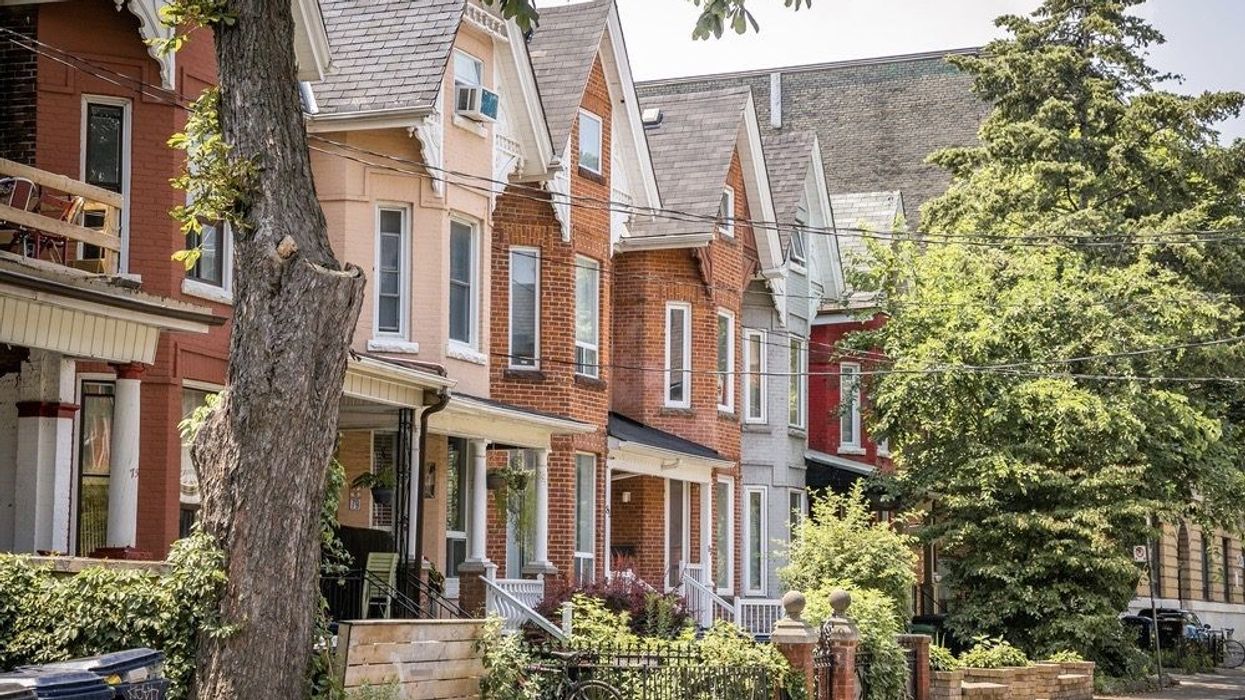After months of declines, the price of a detached house in Toronto is now essentially on par with pre-pandemic prices.
According to the latest data from the Toronto Regional Real Estate Board, the median price for a detached Toronto house dropped to $1.28 million in July, just a $50,000 difference from the $1.23 million median price seen before the pandemic in February 2020. It's no secrete that prices have been steadily declining in the city over the past several months, with the July data revealing a $95,000 drop from the previous month and a $395,000 nosedive from the market's February peak.
John Pasalis, president of real estate brokerage Realosophy, has similarly observed prices of low-rise Toronto homes in general marching towards pre-pandemic prices. In a recent report, Pasalis noted that the median price in July for the city's low-rise homes, which includes everything from detached to semi-detached to row and townhouses, was $1.433 million. This is only slightly above the $1.407 million price seen in February 2020 for the same home types.
Although surrounding municipalities like Peel, York, Halton, and Durham have all seen significant price declines since the market downturn began earlier this year, they're not yet anywhere near pre-pandemic prices. York, for example, had a median detached home price of $1.46 million in July, which is still up a whopping $296,500 from the region's February 2020 median of $1,163,500. Durham, Peel, and Halton prices are still up $235,00, $282,000, and $266,800, respectively.
"Those areas saw prices jump something like 70 or 75% in two years, whereas the City of Toronto only went up 30%, which is still a lot in a normal environment, but comparatively, they were underperformers," Pasalis said.
READ: Buyers Refusing to Close May Not Be as Common as Some Think
This means that the roughly 22% decline in prices that's been seen across the GTA since February has a much bigger impact on Toronto where price growth was more moderate to begin with.
Although rising Bank of Canada rates are pushing some buyers out of the market, Pasalis says he's already seeing some balance between the increased cost from rising interest rates and the decrease in home prices.
"A lot of the clients that we have that are looking at buying, they're buyers, in many cases, who were looking in the spring who just hit pause because it was crazy, and now they're looking at reentering the market," Pasalis said. "If we rewind the clock, the homes that they were looking at in the spring that were selling for $1.5 million are now selling for a $1.1 million or $1.2 million, so they're already down $300,000-400,000."
Although Toronto home prices are lower, Pasalis notes, that does not mean they're cheap.
"Prices are still obviously very high," he says. "They were high pre-COVID [and] are still high, but for the buyers who qualify, they can get in the market, because, again, prices are well down from their peak."
Summer is typically a much slower season for real estate sales, with the fall generally seeing a bump in interest. Looking forward, it's not yet clear whether Toronto prices will continue to fall, dipping below pre-pandemic prices, or if the suburbs will similarly get on par with February 2020.
"When we think about what's going to happen in the fall, it's very tough to say," Pasalis said. "The most likely path is either prices continue to drop probably at a lower rate, not as rapid as we seen, or they stabilize. We're seeing definitely a lot more interest from buyers looking at buying this fall, but we have to see what the listing volume is like and if it doesn't keep up with buyer activity, we might see some stability and prices, but again, if sales volume is weak compared to listings, we might see some downward pressure. So it's hard to say for now but we'll probably get a better idea of what the market balance is like by the end of September."





















